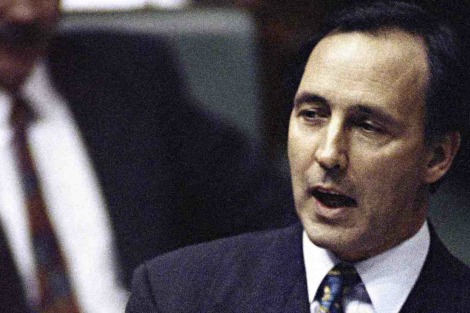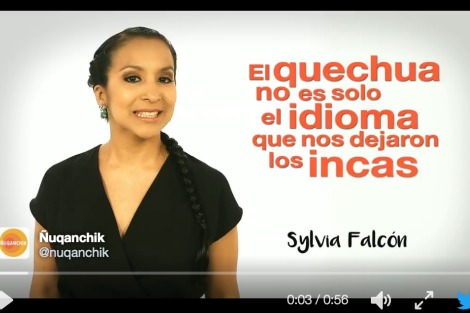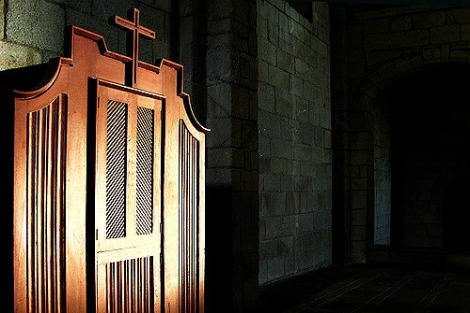Keywords: Judge
There are more than 200 results, only the first 200 are displayed here.
-

RELIGION
- Frank Brennan
- 14 March 2017
24 Comments
The debate over section 18C of the Racial Discrimination Act (18C) has gone on for far too long. It's time to bring it to a close. To date, I have been silent in the present debate, in part because I was a critic of such legal provisions when they were first proposed in 1992 and again in 1994. I have since been convinced that a provision like 18C could be designed to target racial vilification, leaving offensive insults beyond the reach of the law in a robust democracy committed to freedom of speech.
READ MORE 
-

MEDIA
- Andrew Hamilton
- 14 March 2017
10 Comments
Arguments for repealing 18C ignore the symbolic force of law in an imperfect society in which we live. In public life the One Nation Party, which is able to exert some influence on legislation in a fragmented parliament, regularly criticises Muslims. These views are also retailed by commentators in some mainstream media. They increase the anxiety of immigrants from Muslim nations. In such a context any weakening of 18C will be seen as the declaration of open season against such groups.
READ MORE 
-

RELIGION
- Bill Wright
- 06 March 2017
4 Comments
Speaking of reform in the church can mean many things. Often it's about practical matters: sorting out the Vatican Bank, changing how bishops are chosen or clergy trained; that sort of thing. Occasionally, however, reform is about seeking real religious change. Martin Luther, I want to suggest, is one of those reformers who was not concerned with tinkering with structures of the church but with reforming the Christian message so that it might reform the believer.
READ MORE
-

RELIGION
- Frank Brennan
- 17 February 2017
3 Comments
The commission's forensic scrutiny of past actions of church officials in no way constitutes an interference with the freedom of religion. Its spotlight is to be welcomed, provided only that it is shone on a truly representative sample of all institutions which have been found wanting and provided the same light filter is applied to all institutions. I do however have a problem with the commission making findings on issues like the want of compassion when those findings are made only against a Church.
READ MORE
-

INTERNATIONAL
- Antonio Castillo
- 24 January 2017
4 Comments
One indigenous language vanishes every two weeks, and Quechua, once the tongue of Peru's mighty Inca Empire, was one of those heading to extinction. That is, until last December, when the first ever Quechua language television news service went to air on the platforms of TV Peru and National Radio, the public broadcaster. According to one presenter it is a 'space that breaks all the paradigms of discrimination and inequality toward those who are speakers of indigenous languages'.
READ MORE 
-

RELIGION
- Frank Brennan
- 05 December 2016
18 Comments
One distinctively Catholic practice is personal confession in which an individual confesses to God their sins and seeks forgiveness in the presence of and at the hands of a priest. Some groups and individuals are proposing to the royal commission that the seal of the confessional no longer be inviolable. I was quoted in The Australian saying, 'If a law is introduced to say that a priest should reveal a confession, I'm one of those priests who will disobey the law.' Being also a lawyer, let me explain.
READ MORE 
-

ENVIRONMENT
- Frank Brennan
- 28 November 2016
'No matter what the economic, political and legal problems confronted by modern day India, our response can be improved by an application of the key principles and norms developed in the international law of trade and human rights, helping to enunciate the realm of law, regulation and political accountability, enhancing public scrutiny providing the right environment for doing business.' Frank Brennan presents the 25th JRD Tata Oration, Xavier School of Management, Jamshedpur, India, 26 November 2016.
READ MORE
-

AUSTRALIA
- Shira Sebban
- 18 October 2016
12 Comments
Finally he is having his day in court. After 13 months languishing in limbo in immigration detention, he has been given the opportunity to be heard. Hopefully, it won't be long now before his case is determined and his torment resolved. Or so I thought. But in today's Australia, asylum seekers are not treated the same way as you or me. I meet him not as originally planned in the courtroom itself, but in the bowels of the building where he has been confined for the second day in a row to a tiny cell.
READ MORE 